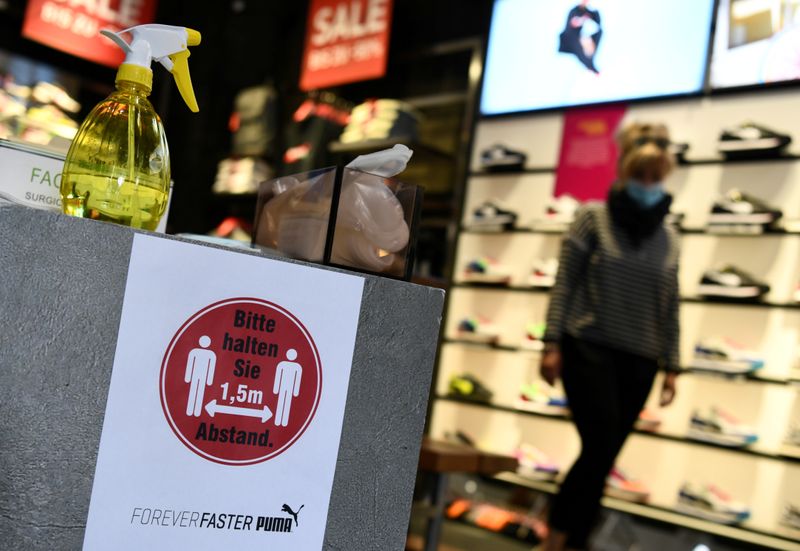BERLIN (Reuters) – A surge in supermarket and online shopping prevented a double-digit dip in German retail sales in April, data showed on Friday, a sign of the relative resilience of Europe’s largest economy during the coronavirus crisis.
Retail sales dropped by 5.3% on the month in real terms after an upwardly revised drop of 4.0% in the previous month, data from the Federal Statistics Office showed. The reading was much better than a Reuters forecast by analysts for a 12% fall.
On the year, retail sales dropped by 6.5% in real terms after an upwardly revised contraction of 1.2% in March. A drop of 14.3% had been forecast.
Retail sales, a volatile indicator often subject to revision, had provided impetus to Germany’s cooling economy before the crisis, compensating for the manufacturing sector which had been in a recession for more than a year.
“It is a sign of the times that a 5.3% fall in German retail sales is a large upside surprise,” Greg Fuzesi of JP Morgan said in a note. “Coming on top of a 4% fall in March, retail sales have fallen ‘only’ around 9% since February even though all non-essential retail shops were closed for most of the month.”
The data showed that supermarket sales rose by more than 8%year-on-year and online shopping surged by more than 24% compared with April last year, offsetting a drop of more than 70% in sales of clothing, shoes and leather items.
The figures are another indication that Europe’s largest economy is weathering the pandemic better than its neighbours and that consumption could rebound in the coming months as economic and social life returns to normal.
Separate data from the Federal Statistics Office showed negotiated wages rose by 3.2% on average in the first quarter of 2020 compared with the same period in 2019.
(Reporting by Joseph Nasr; Editing by Michelle Martin and Maria Sheahan)






















